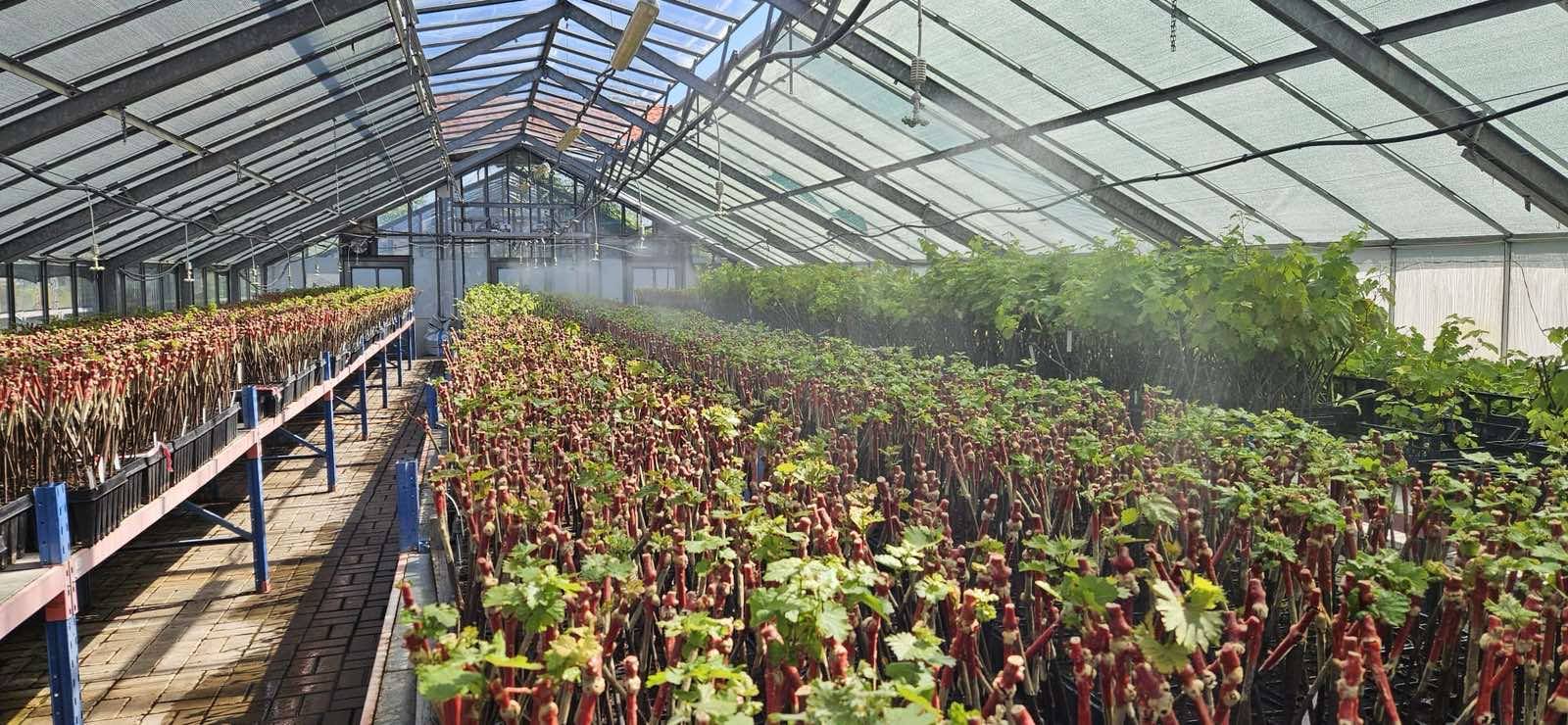
Moldova to introduce Variety's Passport as document for vineyard planting material's origin
The recognition of the Variety’s Passport, a document developed by the National Institute for Applied Research in Agriculture and Veterinary Medicine (INCAAM), as an official provenance document, is necessary for the certification and commercialization of vineyard planting material, in accordance with present legal provisions. Authorities see this document as a strategic direction for enhancing the quality of propagation material and increasing the biological value in local vineyards.
Members of the Commission for evaluating the possibility of using the Variety’s Passport visited INCAAM, an institution that holds the national grapevine genetic fund and is a key player in the production and conservation of vine propagation material. The purpose of this visit was to assess the possibility of using the Variety’s Passport as an official document certifying the provenance, biological quality and compliance of vine propagation material.
‘’The official recognition of the Variety’s Passport will allow INCAAM, in subsequent stages, to get the necessary documentation for the registration and certification of parent plantations and propagation material, enabling them to be legally marketed as certified planting material,’’ said the Ministry of Agriculture and Food Industry.
This procedure was initiated in 2024, and as a result, the Institute got official permission to market 15 grapevine varieties, the origin of which is now recognized through the Variety’s Passport.
For this year, INCAAM aims, upon completion of all evaluation and approval stages, to be able to produce and market another 14 grapevine varieties, thus diversifying the offer of certified planting material and contributing to revitalizing local vineyards.
Through the collaboration between the Ministry of Agriculture and Food Industry, the National Food Safety Agency (ANSA) and INCAAM, Moldova contributes to strengthening the viticultural sector, opening new opportunities for producers and ensuring the necessary conditions for its sustainable and high-performance development. At the same time, Moldova continues its efforts for sustainable for the development of the viticultural sector by initiating the transition from using standard category vine planting material to the widespread use of high biological categories: initial, base and certified.
Construction Site of Vulcanesti-Chisinau line stretches on distance of over 130 km, with 180 Poles assembled, about 380 foundations finished
Moldovan energy minister says Energocom company continues purchases of gas in line with legal framework, in transparency conditions
Petrol and diesel prices drop at beginning of week
Speaker: It is possible in Moldova too! In Bălți, we have bridge built from scratch in record time - 6 months
20 houses to be built with support from Germany, Norway, Denmark
600 km of roads to be repaired or built by 2025
New rules for agricultural subsidies
Parliament passed law on mutual recognition of goods with EU
Draft ratification of Agreement on Reform and Growth Facility for Moldova approved by Government
VIDEO // Moldova bids farewell to genius: Composer Eugen Doga laid to rest today
Moldovan government excludes mandatory yellow registration plates for road passenger transport
Moldovan Ministry of Defense: movements of military equipment to take place on country's roads
Marculesti International Airport to be modernized, to operate seasonal passenger, cargo flights
Sixth EU-Moldova Energy Dialogue Meeting held in Chisinau
Honorary Consulate of Moldova inaugurated in Kingdom of the Netherlands
Moldovan PM meets group of businesspeople from Germany
Moldovan government additionally allocates about 174.5 million lei from state budget to local authorities for public sector salaries
Moldovan government approves new measures to facilitate business development in Moldova
Nominal Composition of Commission for awarding of National Prize for 2025 year announced in Moldova
Road fund increased by one billion lei; Moldovan government rules on how money to be used
Moldovan PM meets European Commissioner for Energy and Housing
Moldovan government launches eDemocracy platform; Citizens from country, Diaspora to have easier access to public services
Moldovan PM pays final tribute to Maestro Eugen Doga
Energocom stock company of Moldova to contract 400-million-euros-worth loan from European top bank to ensure continuity of energy resource purchases
Moldovan cabinet members stand silent for one minute in memory of Master Eugen Doga


